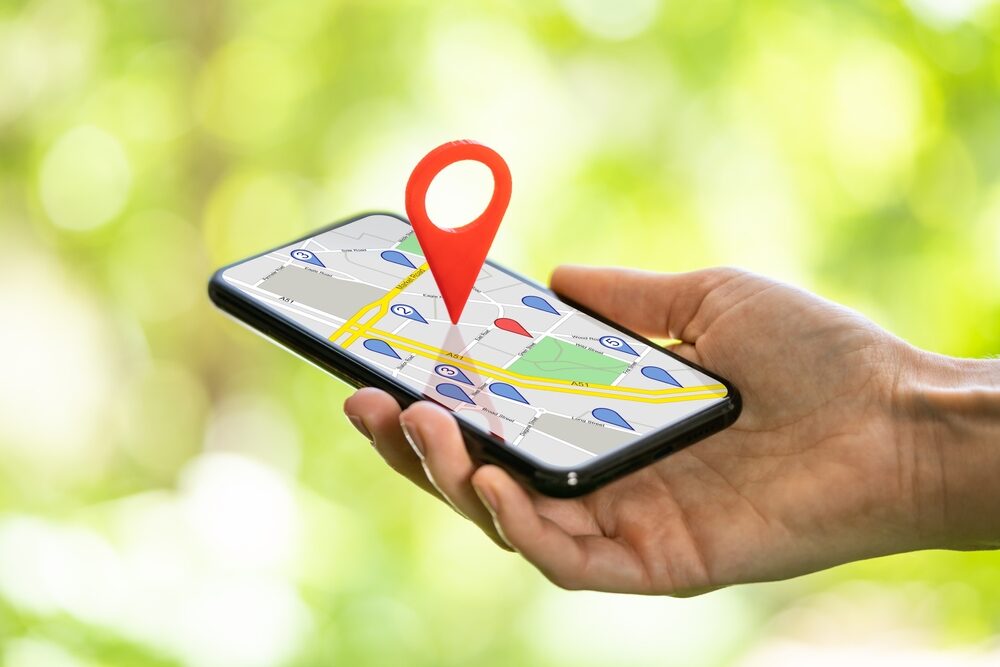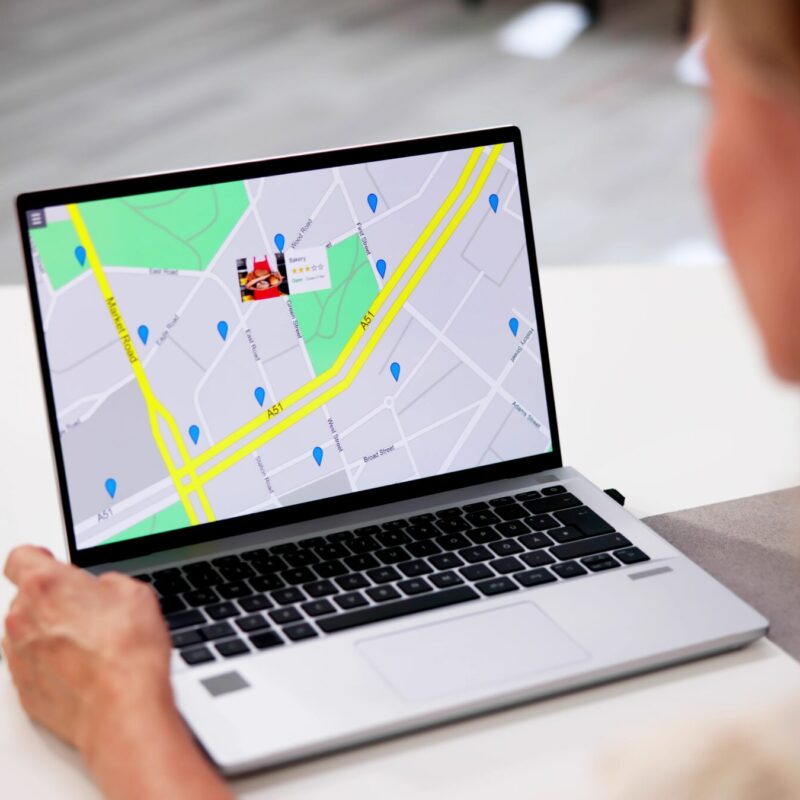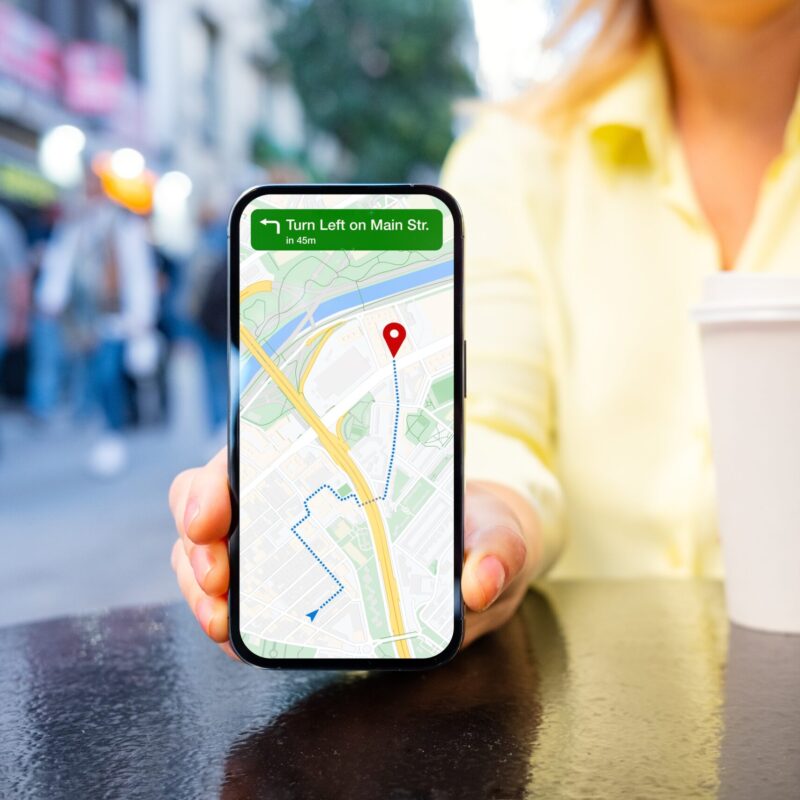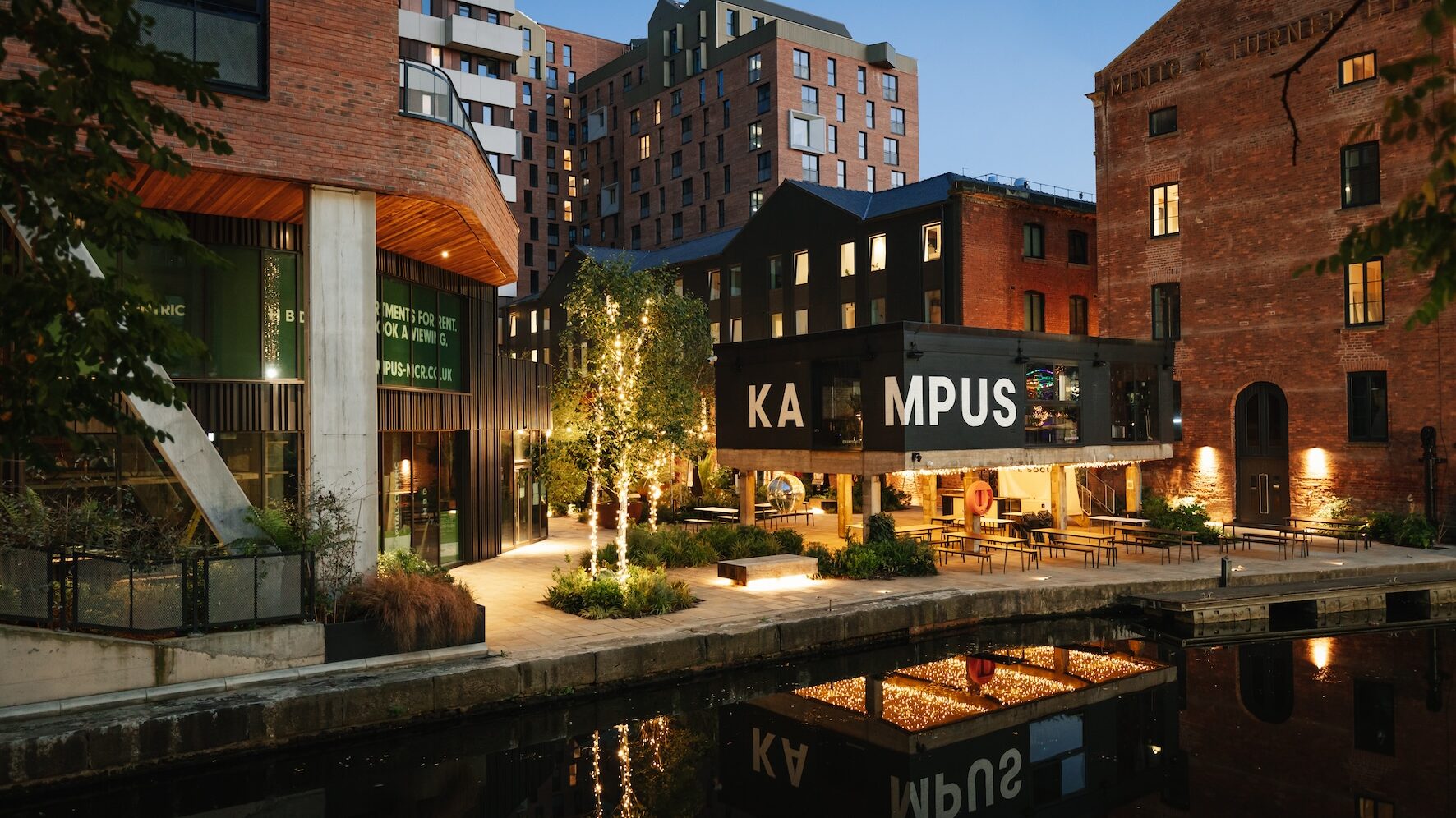Local SEO is the practice of optimising a website in a way that ranks it for local search results. If you run a brick-and-mortar business that has a physical location, local SEO coverage will be crucial to your chances of attracting customers.

Why? Well, nearly half (46%) of all Google searches include local intent (in other words, every other user is seeking a location-based result when using a search engine). With 3.5 billion searches made every day, there’s a huge opening for your business to capture this geo-specific web traffic.
At Embryo, we are a digital marketing agency with a track record of creating successful SEO strategies for a variety of clients.
Every local SEO strategy that we create is unique and driven by data, detailed reporting, and in-depth consultation, so you can be sure that you’re getting exactly what you need for your business.
What is local SEO?
Local SEO is all about using search engines like Google to improve your online presence and increase physical traffic to your business.
Small brick-and-mortar stores are key candidates for those who might benefit from local SEO – however, beyond those, the benefits can extend to any listed business that has a fixed physical location such as a dentist, local supermarket, dog groomer, and more.
Regardless of what business you are in, you should use local SEO if you’re looking to be more easily seen by consumers in the local area and increase footfall.
Local SEO is unique to organic SEO in that, on top of appearing in Maps and Search, it also takes some different factors into account when looking for the best match:
-
1
Distance: How far the business is from the user when they search.
-
2
Prominence: How well-known a business is in the local area.
-
3
Relevance: How closely related the business’ offerings are to the search.
A combination of these factors helps Google find the best match for users’ searches.
For example, a business may be further away from the searcher, but if its offerings are more relevant, they could still be shown higher in the local results.
Local SEO is an extension of organic SEO that focuses more on the searches that people make for physical stores and small businesses within their immediate area. Google’s algorithm sorts local SEO ranking by taking into account how far away a business is from the user, how well-known they are in that area, and how relevant its product or service is to the search.

Why is having a local online presence important?
To highlight the importance of local SEO as part of your SEO strategy, here are a couple more stats to consider.
These two stats alone highlight the importance of local SEO in the process of user conversion for your e-commerce business.
Local search is vital for businesses looking to use SEO to target customers in a specific area or region.
By focusing on local SEO, you improve your rankings and visibility in local search results.
- 86% of people rely on Google Maps to find the location of a business
- 76% of people who conduct a local search on their phone visit a business within 24 hours. This then results in a purchase for 28% of those searches.
Local optimisation makes it easier for people to find you
People use sites like Google almost as a shortcut to knowing what is the best course of action for them. In the case of local search, it is used as a way of telling people the best and most reliable places in their immediate area or region. In this way, local search serves as a bespoke list of recommendations – got in seconds!
By using local search, users don’t have to put too much effort into figuring out where exactly to go out of all of their options. Instead, their options are all laid out for them using a mixture of Google’s sophisticated algorithm and social acknowledgement.
Imagine you’re visiting a busy city centre that you’ve never been to before and are in the mood for Italian food. You’ve only got a few hours left in the evening so you don’t have time to scour the streets.
Caught in these situations, Google’s local search option is a saving grace – saving you time and tailored precisely to your intentions. Local SEO is therefore crucial to businesses wanting to capture floating traffic like this.
Local SEO is important because it makes it easier for people to find you. The easier you make it for people to find you, the more likely they are to spend their money with you as opposed to your competitors.
How can I increase my online presence?
If you want your business to appear on Google’s local search list, our specialist SEO team is here to talk strategy – go ahead and book your free 30-minute consultation today.
How do I know if I need local optimisation?
You should consider local SEO if you’re targeting a customer base that is primarily in the same area as your business.
Not every business needs to (or even should) cater to a national or international target audience – for example, a small independent cafe that’s business model is to serve walk-ins only does not need to market itself on the same scope as a larger restaurant franchise.
In other words, businesses that offer a bespoke local service should consider local SEO.
If you’re still unsure whether your business needs local SEO, another point to consider is that you don’t even need a head office to use local SEO to its full potential.
If you’re self-employed and don’t need an office or HQ to do your job, you can still use local SEO to advertise your trade via reviews and personal contact information.
This makes it easier for potential customers to get in touch and read more about your services, especially if you have an established website or social media presence.
-
- As well as an address, local search results provide other important information for users to learn about your business, like:
- Buttons to access your website, get directions, save the result for later, and call directly
- Your business’s trading hours
- Customer reviews and star rating (out of 5)
- The areas your business serves
- Popular times to visit your establishment
You will likely need local SEO if you offer a local service or if your business has a physical storefront that you need people to visit.
If you’d like to learn more about local SEO, feel free to contact us today. We can help you plan out your local SEO strategy with useful insights into your target market.
Organic SEO vs local SEO: Are they the same?
Now that we’ve gone through the basics of local SEO, let’s compare it to organic SEO. Are they the same? Are there many differences between the two? How can businesses use both types of SEO to boost awareness and traffic?
Both local and organic SEO are similar in what they want to achieve – however, the user intent between the two is different.
Local and organic SEO both optimise your business’ online presence for search engines, but their ranking factors differ.
Local SEO
All about optimising your website for location, and targeting potential customers that are physically close to your business.
Organic SEO
All about optimising your website for content, and targeting potential customers from anywhere.
As a result, local SEO would directly impact the actual footfall to your business whereas organic SEO is more geared at businesses that generate sales through online traffic to their website (which, too, could lead to an increase in actual footfall but in a less immediate manner than local SEO).
Are there any other differences between organic and local SEO?
Whilst the core differences between organic and local SEO are the geographical component, there are a couple of other factors that set both SEO tactics apart.
Let’s take a look:
SERP location: Organic vs local SEO
Local and organic results also show up in different areas on the SERP.
When relevant, local SEO results can appear on the organic SERP in what Google calls the ‘Local Pack’. This Local Pack appears at the top of SERPs when a locally intended search is made.
The Local Pack is this super handy collection of local results that appears above the organic results. It includes the top rated results for your specific search and uses Google Maps to show the user where each result is based.
You may not recognise it by name, but you will when you see it. Take this search we made for ‘dog groomers near me’ as an example.


User intent: Organic vs local SEO
This brings us to the different user intent between organic and local SEO.
User intent for organic search: Audiences are seeking an answer to a question or query. They are not necessarily looking to make a purchase.
To engage them, businesses need an effective organic SEO content strategy that serves to answer their query. This is where organic content comes in…
Organic content is any unpaid marketing efforts that customers could naturally find. It is basically the content that appears on your website.
- Examples of types of organic content include:
- Blogs
- Downloadable material
- Newsletters
- Infographics
- FAQs
- Guides
Their inclusion on your website helps to establish your brand as a thought leader in your industry. They work to increase brand awareness, improve SERP rankings, and convert more users to paying customers.
User intent for local search: Audiences are actively shopping for a product or service in their location.
Their search is much more specific in terms of the type of business they want to make their purchase with, and they usually even add specific geo-location info in their search (e.g. ‘X near me’).
Local SEO and organic SEO are not the same. Even though they appear in the same SERP, their content and audience intent are significantly different and serve different purposes.
The benefits of local SEO
Now that we’ve gone through the basics of local SEO as well as some differences between organic SEO, let’s run through some of the benefits that come with implementing and optimising local SEO for your business.
Local SEO benefits businesses by being a cheap(er) alternative to advertising that enhances local reputation, drives traffic, and increases conversions.
Considering local information is the subject of so many Google searches (46% as mentioned), well-implemented local SEO ensures businesses have a base online presence that increases visibility with potential customers.
With more visitors comes more purchases.
If you’re offering a solid product or service to your target market alongside good local SEO practices, increased conversion rates are basically a matter of when and not if.
If you’re a local business, you’re more likely to earn repeat custom with the local target audience, increasing revenue over the long term.
Of course, a good reputation is a must-have for any business.
Without a stellar standing with your clients, you’re not going to enjoy great long-term success anywhere.
Though building a good reputation is ultimately in your hands, Google can definitely help spread your customers’ goodwill through an integrated customer review system, which is displayed front and centre on the SERP.
Of course, this does go the other way too, so it’s important that you work to establish yourself as a business worth praising as negative reviews would work against you – being as visible as they are – here.
By showcasing the social proof of your quality product or service, you enhance the reputation of your business with future potential customers.
A regular stream of fresh customer reviews is also a proven factor in SEO ranking.
Cheaper than paying for advertising
Once your business is optimised for local SEO, it can enjoy the benefit of great exposure on Google SERPs.
Like most SEO optimisation techniques, this is considerably cheaper – and often more reliable – than advertising on Google because the algorithm rewards your site with more visibility for following best practices instead of just paying for ad space that disappears once you stop paying for it.
-
- Other benefits of local SEO include:
- Better website experience for users – Part of implementing local SEO (as we’ll discuss very soon) involves making your site more responsive and user-friendly for mobile phones.
- More customer reviews – A big part of local SEO is customer reviews. The easier you make it for visitors to leave reviews, the more you’ll receive.
- Higher website authority – The better your overall SEO is, the more Google will see yours as an authoritative website.
- Bypass competition – Implementing local SEO can give you a great running start compared to any competitors who aren’t doing it.
- Chance to appear in Google 3-pack.
How do I implement good local SEO?
If you’ve realised that local SEO is the next best route for your business, it’s time to think about how to actually implement your local SEO strategy.
We know that local SEO best works for businesses that serve specific areas. But there are a lot of things to consider – and get right – if you want your local SEO strategy to be bulletproof.
There are plenty of ways in which you can improve your local SEO. Begin with creating a Google Business Profile, then research and implement appropriate keywords. Also, ensure your company website is optimised for mobile and include NAP citations wherever possible.
1. Create a Google Business Profile account
If you’re looking to take advantage of Google’s platform, you’ll have to create a Google My Business account (aka ‘Business Profile’). This will be your gateway to using Google as an online host for your business.
How to set up your Google Business Profile:
- Sign in to your Google Account (or create one).
- Go to ‘Create a Profile’.
- Enter the name of your business and search for your business category.
- Choose if you have a location that customers can visit.
(a) If you have a shopfront that is staffed during business hours, click ‘Yes’. (Click ‘No’ if you do not.)
- Enter the service area in which your business operates.
(a) Set your service area based on the cities, postcodes, or other areas you serve (up to 20).
*(*b) Google advises that you don’t extend the boundaries of where your business is based farther than 2 hours driving time unless appropriate.
- Enter a phone number and a URL for your website.
- Select verification option (‘Verify now’/’Verify later’).
Maintain your business’s online presence to ensure Local SEO
- Once you have your digital presence set up, the game then becomes maintaining it with any relevant updates and material, including:
- Up-to-date opening hours (accounting for vacations and national holidays)
- Company logo
- Acceptable payment methods
- Images of your product/service, workplace, customers, employees, etc.
- E-E-A-T signals such as customer reviews (plus responses to reviews where possible)
- Announcement posts for products, events, and special offers
- Locally themed content (e.g. blog/social posts/videos on local activities/events)
Best practices for creating a Google Business Profile
Google also has a selection of handy tips that you should consider to get the best out of your Business Profile:
- Create just one Business Profile for the metropolitan area you’re in. Google may suspend accounts associated with multiple profiles in the same place.
- Hide your business address if you don’t have a shopfront that receives customers
Once your Business Profile is completed and verified, your business will be much more accessible and engaging on local and organic SERPs.
2. Local service-based keywords
The foundation of SEO and any search-based marketing is keywords – the terms users type into search engines to find their product or service of choice.
Keyword research is just as important to local SEO as they are to organic SEO, though they work in a slightly different way.
As you’d expect, local keywords contain location-specific phrases that generate results related to that particular location and help drive people there.
-
- Examples include:
- Best Italian restaurants Manchester
- Italian restaurant Manchester
- Cheap Italian restaurant Manchester
But how do you know which local keywords are best for you? And what are some best practices that you can undertake that will help you appear in the most relevant local searches?
Local SEO keyword research
The first step in figuring out your local keywords is conducting local SEO keyword research.
The goal of keyword research is to allow businesses to see what kinds of key terms their audience is searching for.
This may sound intimidating to business owners who may not be too familiar with the local SEO landscape. Luckily, there are plenty of tools that can help you generate a list of relevant terms.
Before you start using any of the local SEO tools available, a simple exercise for business owners is to just use the Google SERP.
Think about what you would want to type into Google if you were your own customer – how do you want people searching in Google to find you?
To go a little further, consider adding modifiers that people use when searching.
Popular keyword modifiers include:
- ‘Best’
- ‘Top’
- ‘Cheap’
- ‘How much’
There are also industry-specific modifiers depending on your line of work that you can take advantage of.
For example, for a butcher, ‘organic’, ‘local’, ‘fresh’, and ‘delivery’ would all be appropriate modifiers that you could expect people to use.
The thing to aim for when considering keywords is search volume.
The higher the search volume, the more people will be searching for that particular phrase. Because high search volume terms are well sought after, it becomes a competitive space so any on-page SEO optimisation helps greatly.
Keywords with high search volume and low competition are SEO’s best friend. These represent the keywords that lots of people are searching for but not many sites are optimising for. Keywords like this often turn out to be a goldmine of organic traffic.
Google Keyword Planner
If you’re unsure of what the search volume is for a particular phrase, Google Keyword Planner has your back.
This is a handy tool for suggesting keywords that you may not have thought of.
It also provides the average monthly search volume of each search and its competitiveness.
3. Mobile responsiveness
Mobile responsiveness is a key pillar of basic SEO practice and no more so than with local SEO.
A large number of people who use Google’s local search function do so on their phones when they’re on the move. Therefore, it’s vital that your business is optimised for these spontaneous mobile visits.
That’s not to mention the fact that nearly two-thirds of all searches are now made on mobile!
Mobile optimisation involves making a website easy to use on mobile devices. A variety of factors must be considered, including:
- Reader-friendly text on smaller screens
- Quick site loading speed
- Compressed images and multimedia
- Good user experience (UX) from the interface and design
- Clickability and interactivity
- Pop-up ad minimisation
Mobile optimisation enables the fullest engagement on your site (including any CTAs).
Google outright penalises lack of mobile optimisation, too, so getting it down to a tee is crucial.
‘But how can I make sure my website is mobile-friendly?’
Well, this one might require some help from experts. In the meantime, you can get a head start on your site’s mobile optimisation.
Check your site’s mobile-friendliness
If you have a business website and aren’t sure whether it is optimised for mobile, you’re in luck!
-
- Google has its own mobile-friendly test tools that will analyse your website using a series of performance metrics:
- Mobile-Friendly Test: Tests how easy your website is to use from a mobile device.
- PageSpeed Insights: Diagnoses performance issues and suggests fixes.
Just paste your URL into each and let them do their thing.
If your site is deemed unusable or too slow, you have a couple of options.
Platforms like Squarespace and WordPress offer website-creation tools that have made website building super easy.
The hard work then comes in to ensure that every page of your site looks and performs as well on mobile as it does on desktop. This includes keeping your site populated with fresh SEO-friendly content, which is obviously a big time sink for busy company owners that also have the day-to-day of their business to run.
Here, SEO expertise is essential, which is why many companies call the experts to optimise and maintain site performance.
Mobile optimisation is an established SEO requirement nowadays so any web designer worth their salt will ensure that their clients’ sites follow a ‘mobile-first’ design philosophy.
At Embryo, we understand what it takes for a website to perform as well as it looks. If you want help making your business website stand out, feel free to chat to us to see what we can do.
4. Nap citations
NAP citations are local SEO essentials and are foundational to everything else you do.
-
- NAP citations are any mention of the following online:
- Name
- Address
- Phone Number
Citations can (and should) appear in lots of different places online, including business directories and social networks.
How do NAP citations help with local SEO?
The main reason NAP citations help with local SEO is that they allow potential customers to know the three most important methods of getting in touch with you.
Because they are helpful for users – and because they help search engines verify the legitimacy of a site – it’s widely accepted that Google incentivises them as part of a solid local SEO strategy.
Local Content
For obvious reasons, relying on other sites to get your citations is not a steadfast approach to boosting local SEO – it’s useful, but remains the tip of the iceberg of optimisation tactics.
Creating your own fresh organic content is key.
If you have a blog section on your site (which you should!), make use of it by creating locally themed content for the people in your area. This helps signal to Google that you are a local authority for your industry.
Locally themed content helps you rank for local queries and can drum up interest in potential customers.
On top of this, keeping your site populated with regular content will tell search engines that you are a trustworthy, active site worth ranking.

Transforming potential. Fuelling growth.

Busting some local SEO myths
SEO’s constant evolution means that marketers must adapt their practices to drive results. This is true for best practices for local SEO as much as it is for organic SEO.
Now that we’ve covered the must-dos for local SEO, it’s time to bust some of these myths that threaten to slow down your local SEO efforts.

Myth #1: Setting a wider service radius will help ranking
When setting up the service radius in the Google Business Profile, many business owners are tempted to broaden their scope of coverage to gain extra ranking.
This doesn’t work.
Setting this radius wider than you otherwise would to manipulate your local SEO will achieve nothing.
You should set this radius to the maximum distance that you can travel to clients or vice versa.
Myth #2: Embedding a Google Map on your website will help ranking
First and foremost, embedding an interactive Google Map on your website is a great idea.
- It helps visitors gain an overview of your site in seconds through its intuitive features including:
- Pin of your business location
- Address
- Reviews and star rating
- Directions
- Nearby places of interest
In doing this, you make your website easier to use for visitors which tells Google that your website is rankworthy. Indirectly, this will help with your ranking, but having an embedded Google Map on your site does not contribute to increased rankings alone.
It’s also relatively easy to do, especially with sophisticated CMS sites like WordPress.
However, customer convenience is the only reason to do this.


Myth #3: Local SEO efforts create immediately high rankings
You may have read up to this point and followed each step to the T with the anticipation of seeing immediate ranking results.
Well, in the interest of managing expectations, we’re here to say – not quite.
-
- Much like organic SEO, increasing your ranking on the SERPs takes time, dedication, and flexibility. It relies on several factors:
- Website authority
- NAP consistency
- Link profiles
- Duplicate listings
- How long the website has existed
- How optimised your website is
- How long you continue with your local SEO efforts
- Your expectations of ranking
…and more.
The time for you to gain ranking could range anywhere from four weeks to fourteen months. And then, once ranking, retaining or improving your position will take continuous effort.
Whilst this may seem like a long time in a less-than-ideal world, it’s worth thinking about in the long term.
If your business is going to support you for the rest of your life, then a few weeks to several months is relatively short in comparison!
And once the ranking does gain momentum, you’re much likelier to see those efforts pay for themselves severalfold in traffic and conversion.
Our advice would be to remain patient and keep up with ongoing SEO efforts to enhance your website’s ranking potential.
Working with Embryo for your local SEO
Local SEO is a vital part of growing any business online.
Not only does it provide your customers with an easy route to seeing, understanding and reaching your business better, but Google also incentivises local SEO practices by ranking you higher.
There are plenty of tools online that can aid with your local SEO, many of which come straight from Google.
Much like anything worth doing, it does take some time to get right, which can be difficult if you’re already busy trying to stay on top of your business.
With our dedicated team of SEO experts, we at Embryo will make sure that your business has everything it needs to rank on local searches.
We know how hard it is for SMES to compete and make serious money online without spending hundreds on ads.
We’ll work with you to build your audience and online presence so that the leads come in thick and fast.
Get in touch with us today!
Book a free 30-minute consultation with a member of our team to get your business ranking for local SEO. Call us on 0161 327 2635 or email our team info@embryo.com.

FAQs: Local SEO
The main difference between local SEO and organic SEO is what they target.
Local SEO is optimised for location-based searches whereas organic SEO focuses more on generic keywords (beyond geography).
Local SEO shares many aspects of organic SEO practices, like optimising a business website by ensuring mobile optimisation and implementing relevant keywords.
Organic SEO seeks to rank websites higher in Google by creating long-form informative content that helps a brand stand out as a thought leader in their industry, which then leads to higher traffic and conversions.
If your business has a brick-and-mortar location with a customer based in the same city or metropolitan area as you, local SEO is a must-have.
Smaller, more locally serving companies need local SEO the most as it helps them gain traffic in their area which is where most of their revenue comes from.
There is no one industry that needs local SEO more than another.
Thousands of local searches are made every second surrounding all kinds of sectors.
It, therefore, makes sense for companies of all industries to consider local SEO so they can have the best chance at ranking on search engines.
Local SEO increases sales by helping your company get seen by more eyes online. It involves including content and methods that allow more potential customers to see your business online.
As a result, search engines like Google recognise your company as more trustworthy and pushes you further up the ranks before more online users, and the cycle repeats.
When it comes to specifics, local SEO helps increase sales in small different ways:
- Mobile optimisation makes it more likely that mobile users will see your business and make a purchase.
- NAP citations increase brand awareness and the likelihood that people will see the important details of your business for them to convert.
- Local-based keywords will help you solidify your brand as a locally serving company, which may convert more nearby customers in the area.
If you want to increase your local ranking, there are many things you can do, including:
- Add NAP citations across the internet where relevant to help people see the details of your company more clearly and help Google rank your site higher by acknowledging it as trustworthy.
- Enhance mobile responsiveness to help potential customers on the move use your site better, and to show Google that your site is well-optimised. .
- Add locally based keywords to your company site to let search engine algorithms (and users) know that you operate in a particular location.
- Keep on top of usual SEO practices to ensure that your company site doesn’t lose out to competitors.
- Create locally themed content to encourage clicks to your site and engage with your community.
Much like organic SEO, local SEO can technically be done without a penny being spent due to Google being a free platform.
To be done properly and thoroughly, local SEO involves some premium tools – Growthbar and Synup being popular choices – that make the process easier, so there may be a cost involved there.
Even with the best tools, however, local SEO can take a lot of time and effort for business owners.
Because of this, many business owners turn to SEO experts to execute an SEO strategy for them.
The award-winning SEO team here at Embryo will create a bespoke local SEO strategy using relevant data and digital marketing insights. With us, your business will have the best chance of organically ranking on local searches.
By implementing local SEO practices, you improve the potential of physical footfall to your place of business by making it super accessible to online users.
As a result of this increased footfall, you’ll likely enjoy improved conversions from in-person visits. Over time, this will help improve your reputation within your local area, bolstered by the inclusion of local SEO features like reviews and star ratings.
NAP citations should be in as many places as appropriate. This includes:
- Your own site
- Business directories like Yelp, 192.com, and Google My Business
- Other third-party sites that will host your information organically as part of their content
By having your NAP citations in a combination of these places, you maximise your potential for users to see your business information. NAP citations also help search engines to recognise your business as a legitimate one – they demonstrate that your website corresponds to a business that has a physical presence.
Local SEO is crucial for businesses of all sizes to rank online, but any SEO-related efforts can take time.
Business owners, who are already busy with their daily work, can’t often afford to put so much spare time and resources into a proper SEO strategy.
This is where digital marketing agencies can help.
At Embryo, we’ll design an effective data-driven SEO strategy to get your business climbing the ranks of your related local SERPs.













